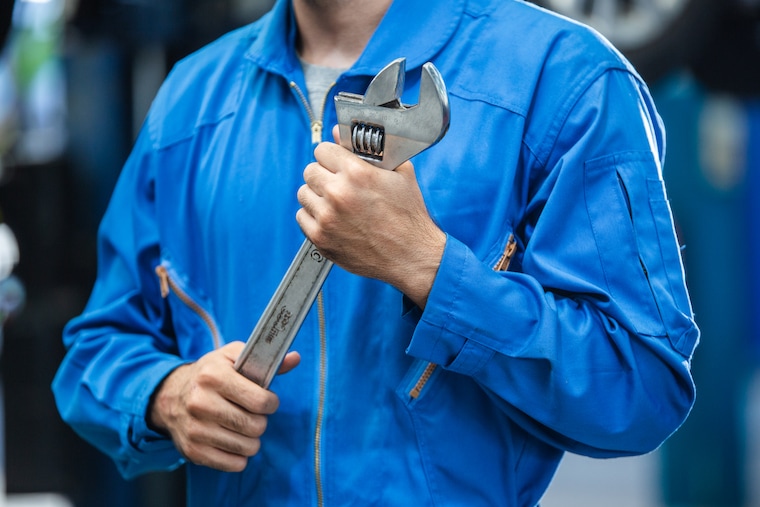Buying equipment and supplies for auto repair shop?
Starting an auto repair shop? Congrats! It’s a smart move in the booming auto industry. But have you considered the equipment and supplies you’ll need to succeed? Our expert guide covers everything you need to know. From crucial factors to top equipment, we’ll help you make informed decisions and set your business up for success.

Understanding Your Auto Repair Shop's Needs
Assess your shop’s needs first before buying equipment and supplies. Identify the services you plan to offer, the volume of work you expect, and the types of vehicles you’ll service. This way, you can prioritize your purchases and invest in tools and equipment that meet your business demands.
Essential Equipment for an Auto Repair Shop
Attention auto repair shop owners! Don’t let your business fall behind the competition. Equip your technicians with the best tools to improve productivity and quality of work. Here are 5 essential tools you can’t afford to skimp on:
- Lifts and Hoists – increase efficiency and allow better access for repairs
- Diagnostic Tools – troubleshoot issues accurately and save time
- Air Compressors – power a variety of tools for pneumatic repairs
- Hand Tools – invest in professional-grade tools for better precision and durability
- Specialty Tools – depending on your services, consider niche tools like brake caliper or transmission service tools. Stay ahead of the game with up-to-date equipment and impress your customers with a job well done.
Essential Supplies for an Auto Repair Shop
Make sure your auto repair shop has everything it needs with these essential supplies. Lubricants and fluids like engine oil, brake fluid, and power steering fluid are a must-have for any maintenance or repair job. Keep a variety of filters and belts, such as oil and air filters, in stock and organized to quickly meet the needs of different vehicles. Don’t forget to streamline repairs by stocking up on fasteners and hardware like bolts, nuts, screws, and clips. Safety is key, so prioritize the well-being of your technicians and customers by having protective eyewear, gloves, first-aid kits, and more on hand. A well-equipped shop ensures a smooth workflow and promotes a safe working environment.
Expert Insights and Recommendations
To further enhance your knowledge and decision-making process, we’ve gathered insights from experienced professionals in the auto repair industry. These recommendations can guide you toward making the right choices when purchasing equipment and supplies:
1. Seek Quality and Reliability: Investing in reliable, high-quality equipment and supplies may come with a higher upfront cost, but it pays off in the long run. Quality tools and supplies enhance the efficiency of repairs, reduce downtime, and improve customer satisfaction.
2. Consider Future Expansion: While it’s essential to focus on your immediate needs, keep in mind the potential for future growth and expansion. Choosing scalable equipment and investing in additional supplies that accommodate your projected growth can save you from costly upgrades down the line.
3. Consult with Industry Experts: Reach out to reputable suppliers and consult with industry experts to gain valuable insights and recommendations tailored to your specific requirements. Their expertise can help you make informed decisions and avoid potential pitfalls.
4. Stay Abreast of Technological Advancements: The automotive industry is constantly evolving, with new technologies and advancements emerging regularly. Stay updated on the latest trends and innovations, particularly in diagnostic equipment, to ensure your shop remains competitive and capable of handling modern vehicles.
FAQ
To start an auto repair shop, you’ll need various essential equipment, including:
Lifts and hoists: These allow you to lift vehicles for easy access during repairs.
Diagnostic tools: Invest in diagnostic scanners, code readers, and oscilloscopes to identify and troubleshoot issues effectively.
Air compressors: Power pneumatic tools such as impact wrenches and spray guns.
Hand tools: A comprehensive set of high-quality wrenches, sockets, pliers, and screwdrivers.
Specialty tools: Depending on your services, consider tools like brake caliper tools, ball joint separators, and transmission service tools.
Determining the right equipment and supplies for your auto repair shop requires careful consideration of several factors:
Assess your shop’s needs: Evaluate the services you plan to offer, anticipated work volume, and types of vehicles you’ll service.
Research reputable brands: Look for reliable brands known for quality and durability.
Seek expert advice: Consult with experienced professionals in the industry or suppliers who can provide insights tailored to your specific requirements.
Consider your budget: Balance your equipment needs with your available budget, ensuring you invest wisely in tools that will support your business growth.
The decision to buy new or used equipment depends on your budget, preferences, and the condition of the equipment available. Consider the following factors:
New equipment: Offers the latest features, warranties, and potentially greater longevity. However, it may come with a higher price tag.
Used equipment: Can be more affordable and readily available. Conduct thorough inspections and request maintenance records to ensure the equipment is in good working condition.
Whether you choose new or used equipment, prioritize quality and reliability to avoid unexpected repairs or downtime.
Finding reputable suppliers for auto repair equipment and supplies can be done through various channels:
Online research: Search for reputable suppliers on search engines, read reviews, and compare prices and customer feedback.
Industry trade shows: Attend trade shows and exhibitions dedicated to the automotive industry. It provides an opportunity to connect with suppliers, see products firsthand, and ask questions.
Referrals and recommendations: Seek recommendations from other auto repair shop owners, industry professionals, or local automotive associations.
When considering suppliers, prioritize those with a strong track record, excellent customer service, and a wide range of products.
To ensure you’re getting the best value for your money when purchasing equipment and supplies for your auto repair shop, follow these tips:
Compare prices: Research multiple suppliers and compare prices to ensure you’re getting competitive rates.
Consider long-term costs: Look beyond the initial purchase price and consider factors like maintenance, warranties, and potential future upgrades.
Check customer reviews: Read reviews and testimonials from other customers to gauge the quality and performance of the equipment and supplies.
Seek bundled deals: Some suppliers offer package deals or discounts when purchasing multiple items together, providing cost savings.
By conducting thorough research, evaluating all costs, and considering long-term value, you can make informed decisions and maximize your investment in equipment and supplies for your auto repair shop.

